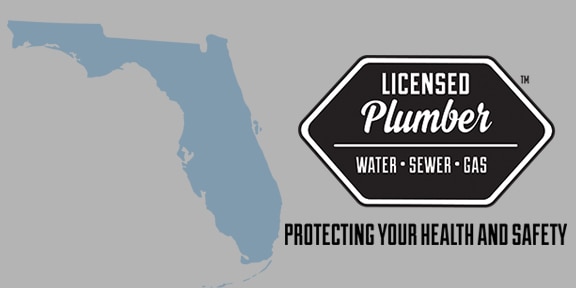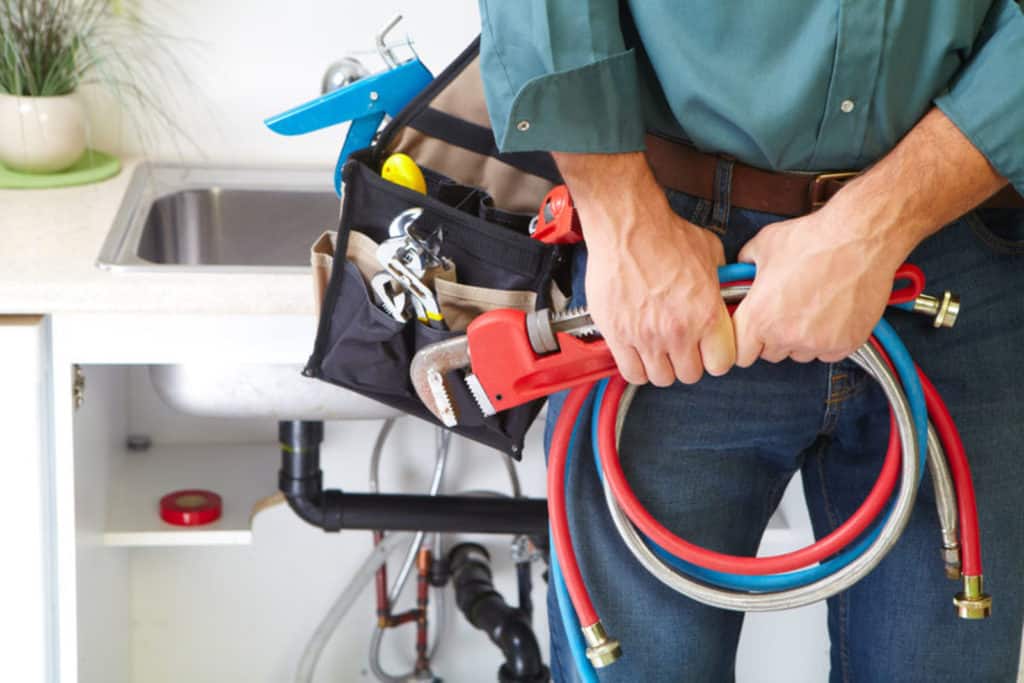Table of Contents
How to Become a Licensed Plumber in Florida

At this point in the 21st century, acquiring a trade skill such as plumbing provides a lucrative career path, considering how these fields are gaining more recognition. However, learning trade skills isn’t as simple as taking the four-year route to university, since each state has different regulations and requirements for licensing qualifications. Learn how to become a licensed plumber in Florida below.
Why Licensing is Important
Licensing is crucial, no matter what state you want to work in, and it’s provided by either a state or district-based authority. Having a license means accessing various job opportunities in your state, which includes large-scale projects like designing plumbing layouts. Performing plumbing work without a proper license is an offense under section 221D, sub-section 1 of the Building Act 1993.
Getting licensed from your state-based authority is a beneficial turning point for a plumber’s career. It promotes learning about the specific plumbing problems that are common in a state, and how to address them with advanced methods.
State vs. District-Based Agency Licensing
In some states, getting a state license is enough for a contractor to complete projects all over the state. On the other hand, bigger states with diversified cities and districts will require a plumbing contractor to get a district license.

This will limit them to working in a particular district, but since these areas will be very large, such as those in the state of New York, contractors get plenty of work opportunities.
Getting a Plumbing License in Florida
In Florida, the state Department of Business and Professional Regulation is the leading authority for providing licenses to plumbing professionals. Although plumbers don’t need to get licensed in a state that doesn’t require trade skill workers to carry one, almost all the states have plumbing regulations and a licensing department.
If you’re looking to work in Florida as a plumber, you must fulfill the requirements, submit an application, give the exam, and get the license. In Florida, you can work as a
- Certified Plumbing Contractor
- Registered Plumbing Contractor
A Certified Plumbing Contractor can provide services throughout the state, while a Registered Plumbing Contractor can only provide services to a particular locality they’re registered in.
How to Become a Registered Plumbing Contractor
To be a Registered Plumbing Contractor, you have to take the local licensing examination based on the area’s plumbing code, and get a passing score.
Start by filling in the application that’s available on the website for the state Department of Business and Professional Regulation.
Send your application with the fee (this will vary based on the area you’re registering from). If the licensing department accepts your application, you can take the exam.
Becoming a Certified Plumbing Contractor in Florida
If you want to pursue career opportunities throughout the state, you should get a Certified Plumbing License. However, you need to complete the process and meet some requirements before getting a license.

Valid Experience
To qualify for a Certified Plumbing license, you should have been working as a plumber for a minimum of 4 years under the supervision of a master plumber. You can prove this through documentation such as certification, wage stub, or tax returns.
For 3 years of experience, you can provide your plumbing apprenticeship degree as proof. You should also have worked as a foreman for at least one year.
Background Check
Next, you should complete a background check to ensure that you don’t have a criminal record. You’ll have to submit fingerprints and complete a form. If need be, you will also need to give supporting documentation about any misdemeanors.
Financial Responsibility
Give proof that you’re financially stable with viable documentation like bank statements, credit scores, and tax returns.
Worker’s Compensation Coverage
If you intend to apply as a company, you need to have public liability and property damage insurance.
Applying for a License
Licensing Exam
Once your application is accepted and you’re eligible to give the exam, request the form from the Department of Business and Professional Regulation or get it from the website. The downloaded pack will have test dates along with an application.
Candidates must give 2 exams, the business and finance test, and the trade exam.
The exam is given two 4.5-hour segments – one in the morning and another in the afternoon. To pass the exam, you need to score at least 70 percent.
After you receive confirmation that you’ve passed the exam, you can get your Certified Plumbing Contractor license.
- Pass the Florida State Construction Examination
- Be a minimum of 18 years old
- Have a high school diploma or equivalent
- 4 years of experience under a licensed professional
- Pay the respective fees (between $209 and $354 for application, $135 for examination)
- Have worker’s compensation coverage
- Show financial responsibility
Finding a Job
Stay Connected with Your Apprenticeship
As a journeyman plumber, you have the options of working at:
- Your past apprenticeship
- A new plumbing company, as long as it allows you to work under the supervision of a master plumber.
As a master plumber, you can supervise apprentice plumbers, while plumbing contractors can start their own plumbing company or work as an individual contractor.
Start Working with a New Company
For a change of pace, you can also start working at a new company after obtaining your journeyman plumbing license.
Start Your Own Company
After obtaining your journeyman license, you can work for the same company where you completed your apprenticeship. This will allow you to work under the direction of a master plumber, and in a practice that you’re familiar with.

Working in a Different State
If you obtain your master plumber license, starting your own company or working as a solo contractor are great career options.
Advocate for Licensing
Nonetheless, getting your state or district plumbing license doesn’t imply that you can work in any state you’d like. In fact, it doesn’t’ even mean that you can work the entirety of your career with just one license.
Getting a plumbing contractor license from Indiana means you can only practice in Indiana. For projects that fall out-of-state, it may be possible to get a temporary permit. Similarly, plumbing contractors will have to get their licenses renewed every year to keep practicing. This is helpful because you get a chance to gain more knowledge about the field.
PHCEid.org is an advocate for the Plumbing, Heating, Cooling, and Electrical contractor to properly identify their licensed status for public awareness. Professional Contractors have the license or certification to work in homes and businesses. Without the proper certification and licensing to become a skilled trades professional, it compromises the integrity of the trade industry.
The contractors listed on the PHCEid.org website are licensed or certified according to the codes and laws set forth by each governing state and/or entity. Licensed Contractors work in compliance with local and state codes set forth by their governing trade industry board. Get more information at PHCEid.org or call 844-954-2367 today!
